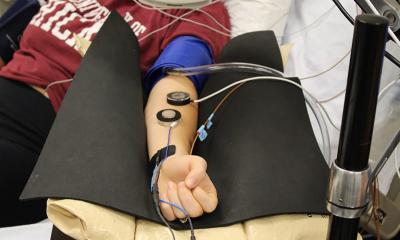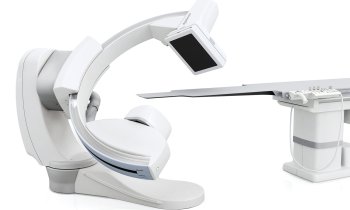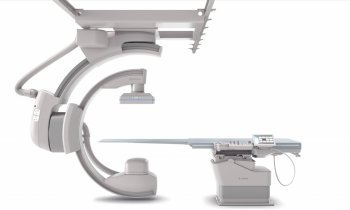Hours at a computer
Short walk can reverse vascular dysfunction
Across the country, many employees are seated at desks for the majority of an eight-hour workday. As technology creates an increase in sedentary lifestyles, the impact of sitting on vascular health is a rising concern. Now, researchers from the University of Missouri School of Medicine have found that when a person sits for six straight hours, vascular function is impaired — but by walking for just 10 minutes after a prolonged period of sitting, vascular health can be restored.

“It’s easy for all of us to be consumed by work and lose track of time, subjecting ourselves to prolonged periods of inactivity,” said Jaume Padilla, Ph.D., an assistant professor of nutrition and exercise physiology at the MU School of Medicine and lead author of the study. “However, our study found that when you sit for six straight hours, or the majority of an eight-hour work day, blood flow to your legs is greatly reduced. We also found that just 10 minutes of walking after sitting for an extended time reversed the detrimental consequences.”
During the study, the researchers compared the vascular function of 11 healthy young men before and after a period of prolonged sitting. The findings indicated that blood flow in the popliteal — an artery in the lower leg — was greatly reduced after sitting at a desk for six hours. Researchers then had the participants take a short walk, and found that 10 minutes of self-paced walking could restore the impaired vascular function and improve blood flow.
“When you have decreased blood flow, the friction of the flowing blood on the artery wall, called shear stress, is also reduced,” Padilla said. “Moderate levels of shear stress are good for arterial health, whereas low levels of shear stress appear to be detrimental and reduce the ability of the artery to dilate. Dilation is a sign of vascular health. The more the artery can dilate and respond to stimuli, the healthier it is.”
Many workplaces are sedentary environments, and the researchers said it’s important that people understand the effects of sitting on their vascular health. By breaking up desk time with a short walk, workers can offset the harm caused to vascular blood vessels.
“Studies have shown that sitting less can lead to better metabolic and cardiovascular health,” Padilla said. “However, more research is needed to determine if repeated periods of reduced vascular function with prolonged sitting lead to long-term vascular complications.”
Source: University of Missouri Health
06.10.2015











